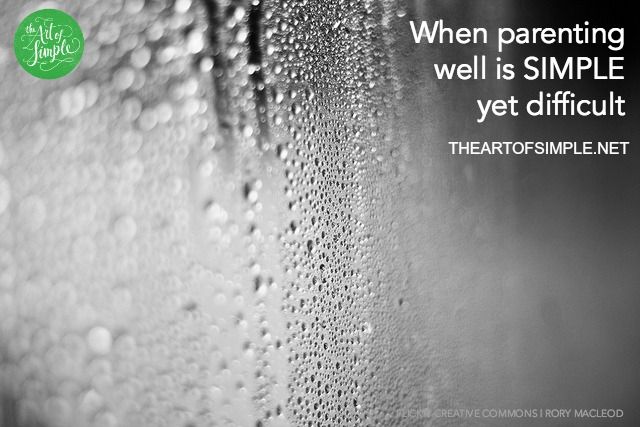The rain is pouring down in sheets, pounding on the top of our minivan so loudly that it’s hard to hear the voice of my seven-year-old daughter in the row behind me. As I slowly drive through the parking lot, looking for an empty space, I see that there are three designated spots for handicapped parking, and all of them are available – right at the front, next to the entrance.
Glancing down at the handicapped placard on the passenger seat next to me, I grit my teeth in frustration. The lot is almost completely full. The only other available spots are in the back of the lot, a couple hundred yards away from the doors, and we have no umbrellas or raincoats. We’ll certainly be drenched by the time we get inside.
My daughter is watching all this from the back seat. As I sigh in resignation, she raises her voice and hollers, “Too bad Laura* isn’t with us! Then we could park in the handicapped spot!”
“Yeah…” I pause, wrestling with a moment of temptation. Then – “Too bad,” I say, and turn the wheel. We head away from the front doors and toward the back of the parking lot. And in doing so, I make a simple yet difficult decision.
Because I probably could have parked in one of those spots designated for handicapped parking. I have a handicapped placard that I can hang from my rear view mirror anytime. It’s sitting right there on the passenger seat. And more than likely, no one would have been the wiser. More than likely, no one would have questioned me about it at all.
But that placard is not for me. It’s for my younger daughter, Laura. I’ve written about her here before; she has cerebral palsy. Though she can walk on her own now, she qualifies for a handicapped parking placard because she has trouble walking very far without falling down, which is obviously quite unsafe in parking lots.
So, her doctor wrote up a prescription for a handicapped parking permit, and we headed over to the Department of Motor Vehicles. When we finally got to the front of the line, the lady behind the counter read the prescription, pulled out the handicapped placard, and began rattling off the rules of engagement in her nasally Southern drawl.
“Now, you can only use this permit when your daughter will be entering or exiting the vehicle, understand? If she’s not in the vehicle, then you can’t use it. If she’s not going to be entering or exiting the vehicle, you can’t use it. It’s not for you, or anyone else to use. If you use it illegally, you will be fined in the amount of…” She continued to talk, and I was nodding over and over, to show I understood. I got it. Yep, I got it.
And standing alongside me all the while was not just Laura, but my older daughter, as well. She heard it all; she knows the rules. She knows that unless Laura is with us in the car and will be exiting or entering the vehicle, we absolutely cannot use the handicapped placard. It would be cheating the system. It would be dishonest.

Photo by Rory MacLeod
As we drive back toward the empty parking spots, the rain continues to pound relentlessly on the roof of our van. I smile at my daughter in the rear view mirror and say loudly, over the din, “Wouldn’t you know it? We finally get some good rain and, of course, we forget our umbrellas!” She laughs and says, “Yeah! I know we’re not allowed to use the handicapped spots when Laura’s not here, so I should’ve remembered to bring my rain jacket! Oh, well!”
We jump out of the minivan and hurry up to the entrance as fast as we can, holding hands and keeping our heads ducked. We are indeed drenched by the time we make it there. But I’m thinking about what’s really at stake.
Soaking wet clothing, hair dripping down our backs. These things are annoying in the moment, but they’re nothing compared to the bigger picture: raising a child with integrity, helping a child to grow in character.
If I do the thing that she knows is wrong – even though I most likely won’t get caught – what will that say to her?
If I do the thing that is dishonest but most convenient for us at the time – even though no one else will probably ever know – what will that teach her?
The decision felt difficult. I hate running through the rain, getting drenched. But it was a simple choice in the end. Simple doesn’t always mean easy. Doing what’s right isn’t always the easy way. And parenting is full of these kinds of choices (sigh).
But the little choices that we make, day after day, add up to a life, and our lives are not lived in anonymity, but out in the open. Our children see us; they watch us and they learn from us. It seems like doing the simple yet difficult thing is usually the right thing.
Now, off to find some dry towels…
*name has been changed for privacy



